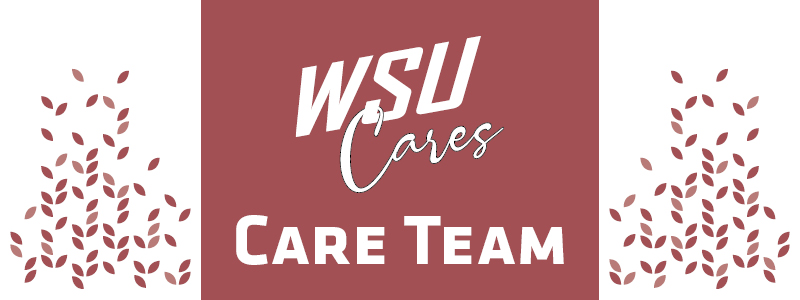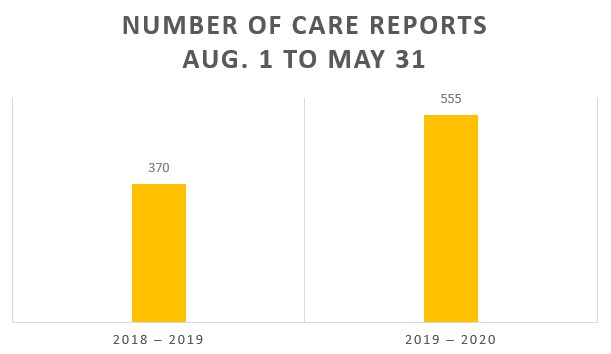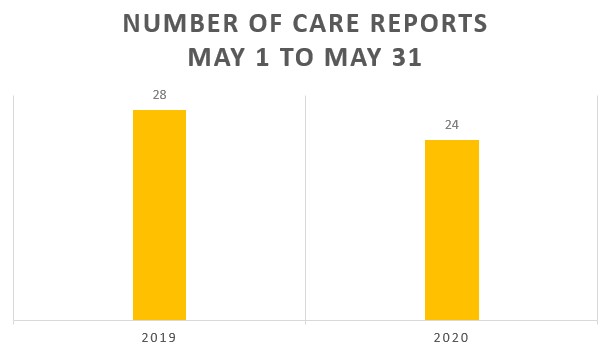
Through the month of May, Care Team continued to see a decrease in cases. In 2019, from May 1 through May 31 Care Team saw 28 open cases, which brought the total number of cases for the 2018 – 2019 academic year to 370. In 2020, from May 1 through May 31 Care Team saw 24 open cases, which brings the total number of cases for the 2019 – 2020 academic year to 555. This is a 50 percent increase in cases for the year to date, and a 14.29 percent decrease in cases for the month of May.


Even as employees return to working on campus, classes are remaining in an online/remote format for summer semester. This has the benefit of minimizing risk of COVID-19 transmission by reducing the number and proximity of people on campus. However, remote communication can also make it more difficult to determine if a student is experiencing distress.
Courtesy of North Dakota State University, here are some signs of distress that can still be identified virtually or remotely:
- Student displays increased levels of anxiety about the class
- Student expresses feelings of sadness, hopelessness or isolation
- Deterioration in quality of student’s work, late assignments or failure to turn in work
- Student stops responding to communications
- Communications from the student seem paranoid, disruptive, disoriented, confused, or suggest a disconnect with reality
- Communications from the student are accusatory, manipulative, inappropriate or threatening
- Student’s tone changes to become dark, negative or odd
- Communication style changes to become irritable, short-tempered, obsessive or disrespectful when addressing staff, faculty or classmates
Care Team’s “How to Help” page contains information and suggestions for recognizing and helping persons in distress, including information on identifying different levels of concern, what you can do to help, and how to submit a concern to Care Team.
You can use the Share, Ask, Support method to intervene. First, by sharing your concern and then letting the student share. Then asking about suicide directly if you observe any signs of distress. Finally, support the student by referring to local resources including Care Team or Counseling and Prevention Services and following up to ensure the student is getting the support they need.
To learn more about the Share, Ask, Support method, sign up for the Counseling and Prevention Services #WSUWeSupportU: Preventing Suicide Training through the myTraining portal. All attendees will receive a free suspenders t-shirt to show their support of mental health on campus.
If you are concerned about a member of our campus community, please don’t hesitate to submit a concern. If you’d like to learn more about Care Team, please check out our website at wichita.edu/care.
Should you have any questions or concerns regarding the Care Team, please contact Alicia Newell, Assistant Vice President for Student Affairs at (316) 978-6105 or Alicia.Newell@wichita.edu. We appreciate our campus community and all that you do. Thank you for helping us create a community of Caring at Wichita State University!

